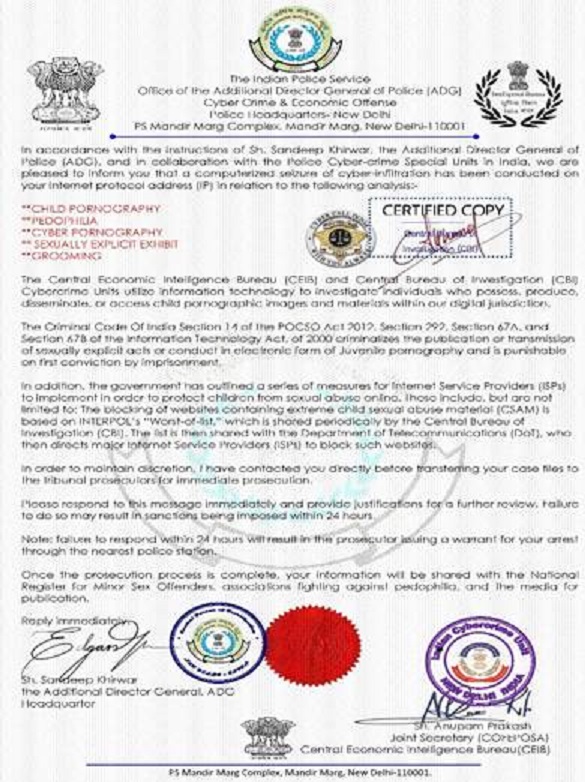“Explore key amendments in the Competition (Amendment) Bill, 2022, focusing on Section 5, Section 6, and new sections like 6A, 29A. Understand the impact on combinations, penalties, and active participation in anti-competitive agreements.”
Competition (Amendment) Bill, 2022
Section 5 of the Act enlists circumstances under which acquisition, merger or amalgamation of enterprises would be taken as combination of enterprises if:
The following clauses and explanations have been inserted vide Competition (Amendment) Bill, 2022:
- value of any transaction, in connection with acquisition of any control, shares, voting rights or assets of an enterprise, merger or amalgamation exceeds INR 2,000 crores. Provided that the enterprise which is a party to the transaction has such substantial business operations in India as may be specified by regulations.
- where either the value of assets or turnover of the enterprise being acquired, taken control of, merged or amalgamated in India is not more than such value as may be prescribed, such acquisition, control, merger or amalgamation, shall not constitute a combination under section 5.
- “control” means the ability to exercise material influence
- “turnover” means the turnover certified by the statutory auditor on the basis of the last available audited accounts of the company in the financial year immediately preceding the financial year in which the notice for proposed combination is filed and such turnover in India shall be determined by excluding intra-group sales, indirect taxes, trade discounts and all amounts generated through assets or business from customers outside India, as certified by the statutory auditor on the basis of the last available audited accounts of the company in the financial year immediately preceding the financial year in which the notice for proposed combination is filed
- “value of transaction” includes every valuable consideration, whether direct or indirect, or deferred for any acquisition, merger or amalgamation
- where a portion of an enterprise or division or business is being acquired, taken control of, merged or amalgamated with another enterprise, the value of assets or turnover or value of transaction as may be applicable, of the said portion or division or business or attributable to it, shall be the relevant assets or turnover or relevant value of transaction for the purpose of applicability of the thresholds under section 5.
Section 6 pertaining to regulation of combinations has been amended to provide that

No combination shall come into effect until 150 days (erstwhile 210 days) have passed from the day on which the notice has been given to the Commission under sub-section (2) or the Commission has passed orders under section 31, whichever is earlier.
Further, proviso has been inserted to provide that in case the party to the combination requests for additional time to furnish relevant information or remove defects to the notice filed under sub-section (2), the Commission may, by order, grant additional time which shall not be more than thirty days for furnishing relevant information or removing defects, as the case may be.
Insertion of new section: Section 6A
Nothing contained in sub-section (2A) of section 6 and section 43A shall prevent the implementation of an open offer or an acquisition of shares or securities convertible into other securities from various sellers, through a series of transactions on a regulated stock exchange from coming into effect, if—
(a) the notice of the acquisition is filed with the Commission within such time and in such manner as may be specified by regulations; and
(b) the acquirer does not exercise any ownership or beneficial rights or interest in such shares or convertible securities including voting rights and receipt of dividends or any other distributions, except as may be specified by regulations, till the Commission approves such acquisition in accordance with the provisions of sub-section (2A) of section 6 of the Act.
Explanation – For the purposes of this section, “open offer” means an open offer made in accordance with the Securities and Exchange Board of India (Substantial Acquisition of Shares and Takeovers) Regulation, 2011 made under the Securities and Exchange Board of India Act,1992.
Section 20 which pertains to inquiry into combination by Commission has been amended to incorporate the latest additions in section 5.
Insertion in Section 20: Orders by Commission after inquiry into agreements or abuse of dominant position
Impose such penalty which shall be not more than 10% of the average of the turnover or income for the last three preceding financial years, upon each of such person or enterprise which is a party to such agreement or has abused its dominant position
Further proviso has been inserted to provide that in case any agreement referred to in section 3 has been entered into by a cartel, the Commission may impose upon each producer, seller, distributor, trader or service provider included in that cartel, a penalty of up to 3 times of its profit for each year of the continuance of such agreement or 10% of its turnover or income, for each year of the continuance of such agreement, whichever is higher.
Explanation – For the purposes of this clause, the expression “turnover” or “income shall be determined in such manner as may be specified by regulations.
Section 29: Procedure for investigation of combination
Where the Commission is of the opinion that a combination is likely to cause, or has caused an appreciable adverse effect on competition within the relevant market in India, it shall issue a notice to show cause to the parties to combination calling upon them to respond within 15 days of the receipt of the notice.
Insertion of (1B): The Commission must form its prima facie opinion, within twenty days of receipt of notice section 6(2).
Insertion of Section 29A
Upon completion of the process under section 29, where the Commission is of the opinion that the combination has, or is likely to have, an appreciable adverse effect on competition, it shall issue a statement of objections to the parties identifying such appreciable adverse effect on competition and direct the parties to explain within 25 days of receipt of the statement of objections, why such combination should be allowed to take effect.
Where the parties to the combination consider that such appreciable adverse effect on competition can be eliminated by suitable modification to such combination, they may submit an offer of appropriate modification to the combination along with their explanation to the statement of objections.
If the Commission does not accept the modification submitted by the parties it shall, within 7 days from the date of receipt of the proposed modifications under that sub-section, communicate to the parties as to why the modification is not sufficient to eliminate the appreciable adverse effect on competition and call upon the parties to furnish, within 12 days of the receipt of the said communication, revised modification, if any, to eliminate the appreciable adverse effects on competition:
The Commission shall evaluate such proposal for modification within 12 days from receipt of such proposal:
The Commission may suo motu propose appropriate modifications to the combination which may be considered by the parties to the combination.
Substitution of Section 43A
If any person or enterprise fails to give notice to the Commission regarding combinations under section 6(2) and section 6(4) or contravenes section 6(2A), or submit information required under section 20(1), the Commission may impose on such person or enterprise, a penalty which may extend to 1% of the total turnover or assets or the value of transaction, whichever is higher, of such a combination.
Further other key amendments in Competition (Amendment) Bill, 2022
|
|
Competition Act, 2002 | Competition (Amendment) Bill, 2022 |
| Introduction of ‘settlement’ and ‘commitment’ | The Bill proposes that enterprises facing investigations relating to (i) anti-competitive vertical agreements under Section 3(4) of the Competition Act, or (ii) abuse of dominant position under Section 4 of the Competition Act, may settle such proceedings or offer commitment(s) to the CCI in the following manner:
1. Settlement: an application for ‘settlement’ may be submitted by an enterprise at any time after the receipt of the Director General of the CCI’s (“DG”) report in respect of its investigation into the relevant matter, but before the CCI passes a final order; and 2. Commitment: an offer for ‘commitment’ may be submitted by an enterprise at any time after the CCI has initiated an investigation, but before receipt of the DG’s report. |
|
| Exchange of information between departments of Government and the CCI | The Bill provides that the CCI may, for the purpose of discharging its duties or performing its functions under the Competition Act, enter into a memorandum or arrangement with any statutory authority or a department of the Government.
This amendment may enable the CCI to exchange information regarding investigations or combinations with other statutory authorities. |
|
| CCI to issue guidelines | The Bill proposes that the CCI may publish non-binding guidelines with respect to the various provisions of the Competition Act (or the rules and regulations made thereunder) either on a request made by a person, or on its own motion.
The CCI will also publish guidelines on the appropriate amount of any penalty for contravention of provisions of the Competition Act. |
|
| Appeals | The Bill requires a mandatory deposit of 25% of the penalty for filing an appeal with the Appellate Tribunal. | |
| Maximum limit of penalty for making a false statement or omission to furnish material information | INR 1 crore | Increased from INR 1 crore to INR 5 crore. |
| Timelines for filing a complaint with the CCI | The Competition Act does not prescribe a timeline for filing a complaint with the CCI. | The Bill proposes that complaints shall be required to be filed within three (3) years from the date on which the cause of action has arisen. A delay in filing a complaint or a reference may be condoned: (i) if the CCI is satisfied that there was ‘sufficient cause’ for not filing the information or the reference within such period; and (ii) after the CCI has recorded reasons for condoning the delay in filing. |
| Active participation in anti-competitive agreements | Section 3(3) of the Competition Act prohibits anti-competitive agreements between enterprises engaged in identical or similar trade of goods or provision of services (i.e., competitors) which determines purchase or sales prices, limits or controls production, supply, markets, etc. | The Bill proposes to widen the scope of the Competition Act to include ‘active participants’ to such anti-competitive agreement (even if such persons are not competitors of other parties). This amendment is proposed to cover ‘hub and spoke’ cartels, where the hub (i.e., the organiser or facilitator) communicates with one or more spokes (i.e., competing enterprises) and causes sharing of information between competitors. |



























